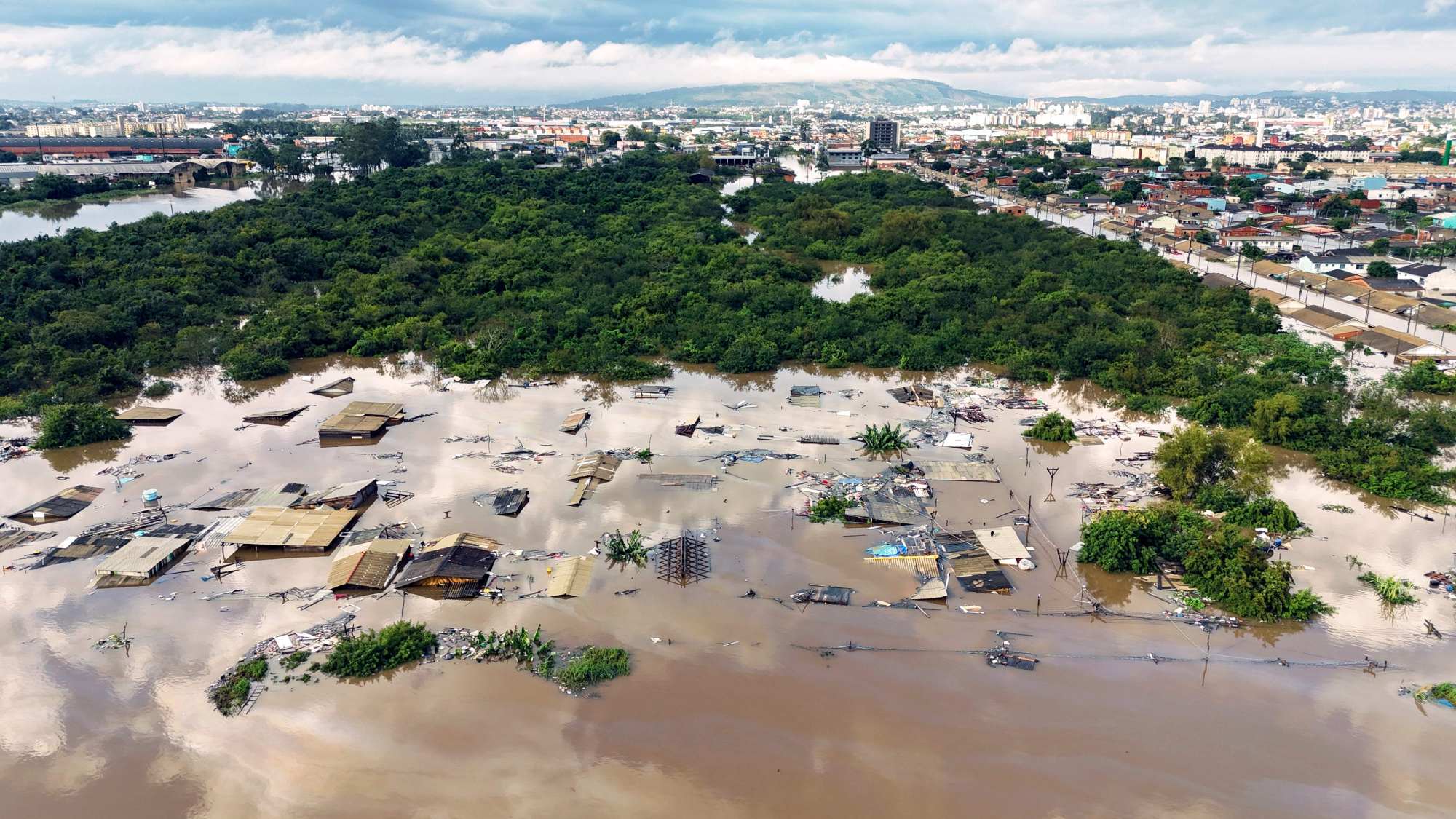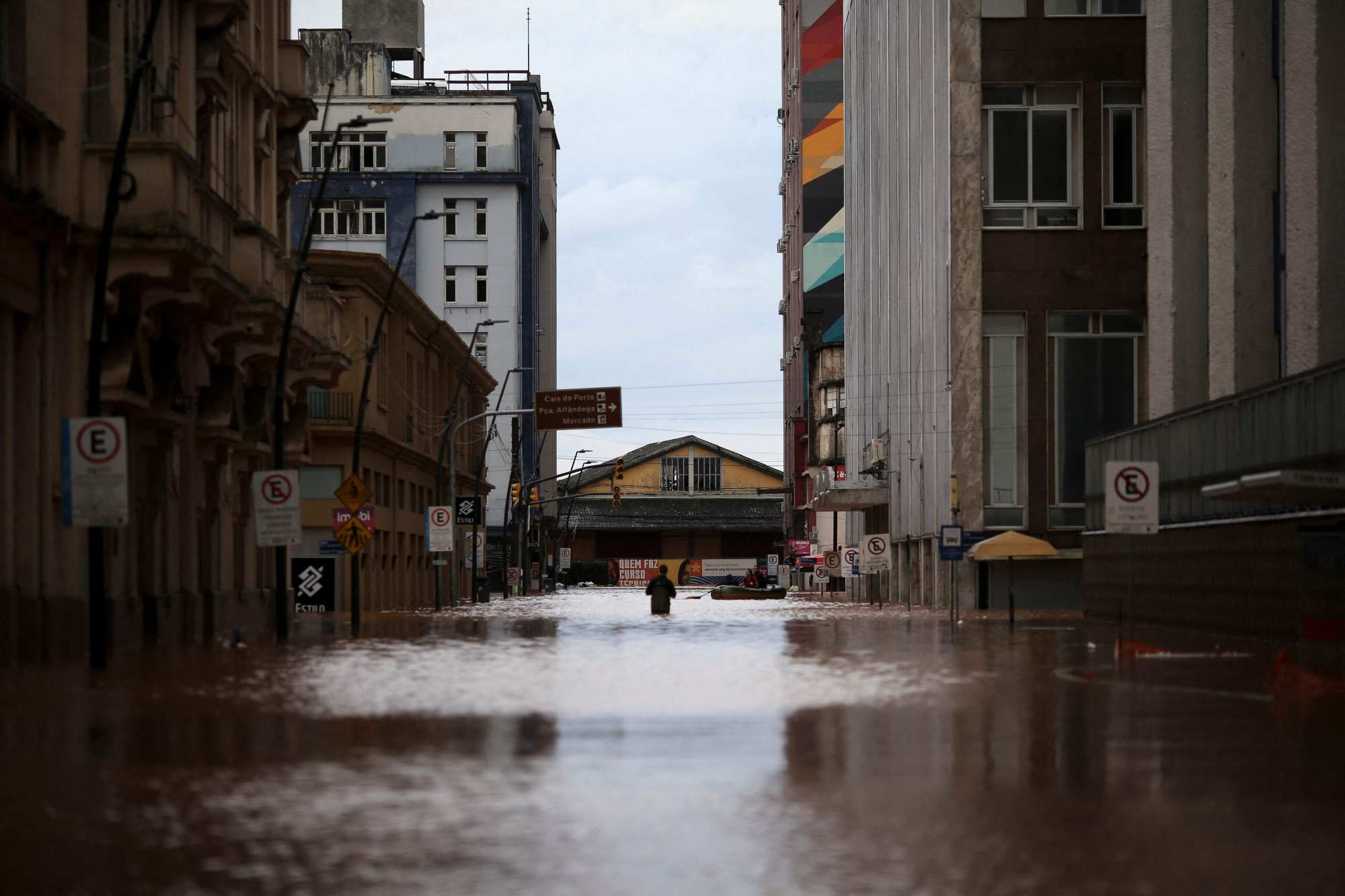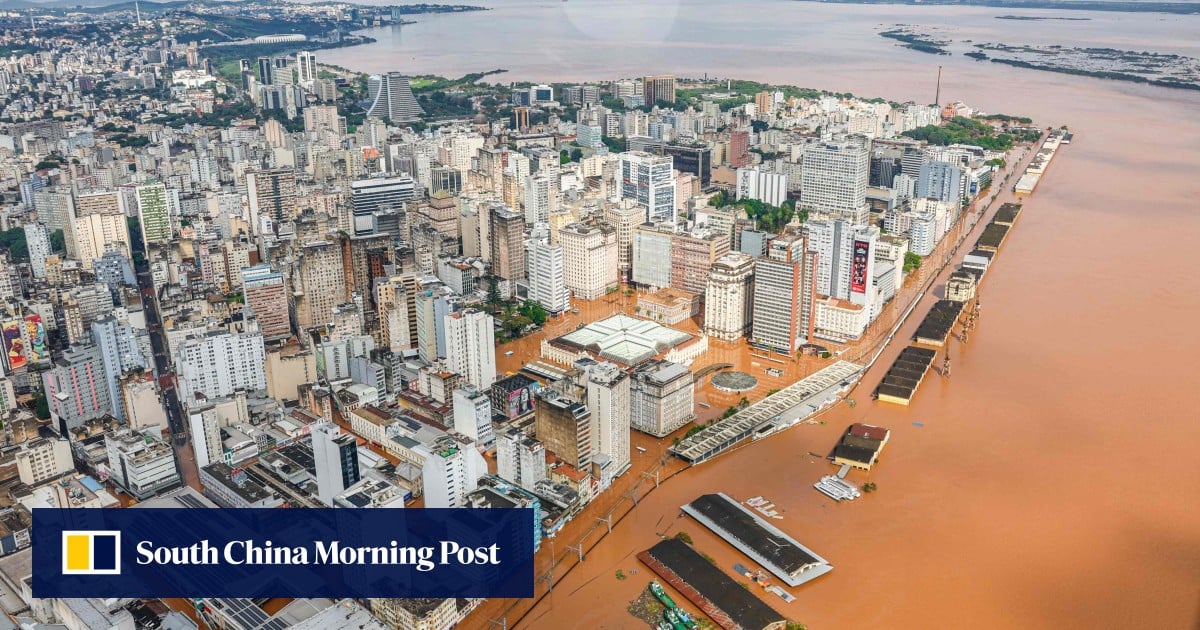But the task is complex in a city with many tall buildings, wide avenues, and some 1.4 million inhabitants.

“There is a lot of water … it is deep. The (rescue) boats are travelling at the same height as the power cables. So to navigate, we must cut the cables,” said Rocha, dressed in a wetsuit, life vest and yellow helmet.
Floods have killed at least 78 people in the state by Sunday, with dozens missing and some 115,000 forced to leave their homes.
President Luiz Inacio Lula da Silva arrived in Rio Grande do Sul on Sunday morning with most members of his cabinet to discuss rescue and reconstruction efforts with local authorities.
“Bureaucracy will not stand in our way, stopping us from recovering the state’s greatness,” Lula said at a press conference.
“It is a war scenario, and will need post-war measures,” state governor Eduardo Leite added.
Besides Porto Alegre, hundreds of towns and villages have been hit, leaving thousands of people without access to drinking water, electricity, telephone service or internet.

The clock is ticking for rescuers to reach those still unaccounted for in the worst climate disaster ever to befall this wealthy, southern region of Brazil.
According to the mayor’s office, the level of the Guaiba River that runs past Porto Alegre reached 5.3 metres (about 17.4 feet) on Sunday – higher than the previous record of 4.76 meters recorded during historic floods in 1941.
Not only professionals are involved in the search and rescue operation.
“We are doing our best to help. Everyone helps in their own way,” said volunteer Luis Eduardo da Silva, 32, from Porto Alegre.
His mission was to collect essential supplies such as life jackets, water and fuel to bring to those in need.
Deliveries, he said, are “done by day” when it is “easier to locate” people amid the devastation.
“A night it gets complicated,” said Silva.
People are also delivering bottled water and food to makeshift distribution points around the city, including gas stations.
The state government has appealed for donations of mattresses, sheets and personal hygiene products.
Many neighbours are lending out their boats, and even jet skis, to aid the rescue effort.
Additional reporting by Reuters

